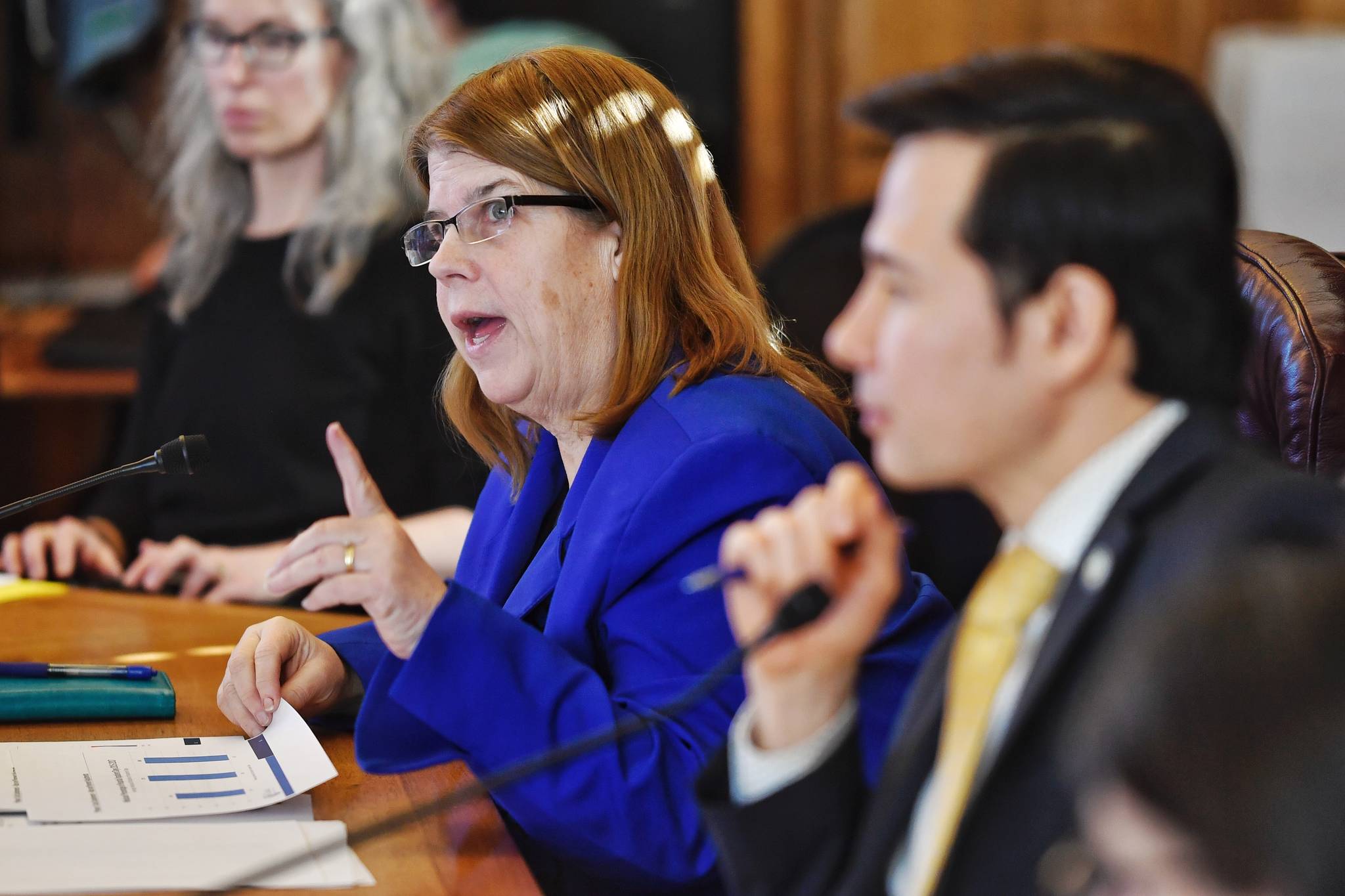Gov. Mike Dunleavy has proposed a 32 percent reduction to the Medicaid budget. His administration is pursuing a $714 million reduction in Medicaid spending, about $187 million of which Deputy Commissioner for the Department of Health and Social Services Donna Steward said will happen in the first phase in Fiscal Year 2020.
She outlined more details of how those reductions would look in a House Finance meeting on Wednesday.
In order to meet these reductions, the department says it will not be making any eligibility adjustments, but it will be making rate, service/utilization and program/administration adjustments.
[Capitol Live: Dunleavy’s proposed Medicaid cuts would be made in two phases]
Phase one reductions would total $187 million, about $103 million of state general funds and $94 of federal funds.
Seven larger hospitals would be subject to a 5 percent rate reduction, Steward said in a Wednesday House Finance committee meeting. Critical access hospitals are ones they will be protecting. Thirteen critical access hospitals (hospitals with 25 or fewer in patient beds) would not be subject to rate increases, nor would primary care providers.
“We wanted to make sure no matter what we do we protect primary care, small hospitals, access to services and to make sure we align payment with other public payers,” Steward said, other public payers being the Medicare program.
Rep. Dan Ortiz, I-Ketchikan, said he’s heard from hospitals in his district that they might be in jeopardy if Dunleavy’s budget is enacted.
“We attempted to apply any other rate adjustment across other providers (besides primary care and critical access hospitals) as fairly as possible,” Steward said.
She said there has been an increase in payments to hospitals from 2015 to 2019, some of which is due to the expansion of federal eligibility of Medicaid.
Rep. Tammie Wilson, R-North Pole, questioned why Medicaid hasn’t looked at a cost analysis of sending patients out of state for certain procedures.
[Proposed Medicaid, health care cuts spark outrage]
“(Alaska Care) insurance tries to push you out, and Medicaid they try to keep you in,” Wilson said.
Steward said she had not looked at whether it would be cheaper to send patients out of state for certain services. But there are certain things that aren’t available in Alaska, so they send patients out of state for those types of services.
“If we send people out of state we’re not going to have as many providers here … but there may be a bigger cost savings,” Wilson said regarding looking at possibilities of sending people to the Lower 48 for medical care. “I just want to put everything on the table.”
Another cause for concern at the meeting was that the proposed budget would eliminate adult dental Medicaid benefits (about $8.2 million of state funds and $18.7 million federal funds), but Steward said emergency dental procedures would still be covered. She said eight states do not provide emergency dental care, and if Alaska stopped providing preventative dental, it would join 18 other states in doing that.
Ortiz said it’s safe to say there will be an increase in emergency dental care costs based on the fact preventative care will no longer be provided.
“Teasing out what that change would be would be difficult,” Steward said.
Rep. Andy Josephson, D-Anchorage, wanted to know what those other eight and 18 states were, commenting that it seemed like “some sort of retreat” to take away preventative care.
“It is a policy decision,” Administrative Services Director Sana Efird said. “I’m sure you’ve heard the governor’s tenant. Our direction was to meet our core services. … We are trying to protect the core services for low income Alaskans for their health care coverage. Yes, cutting the adult preventative dental could increase costs in other areas … however it is an optional service under our Medicaid program and it is a more recent service that has been covered in Medicaid.”
Steward says dental is not required under the Affordable Care Act, so it is truly optional and that entire process of eliminating preventative dental care would take about six months after it goes through.
“Because we are eliminating one of those services that is optional service, the regulation and the state plan change could go through at the same time… it could be a compressed timeline,” Steward said.
If the preventative dental care portion of Medicaid is approved in the budget, services could end as soon as July 1, Steward said.
• Contact reporter Mollie Barnes at mbarnes@juneauempire.com.

